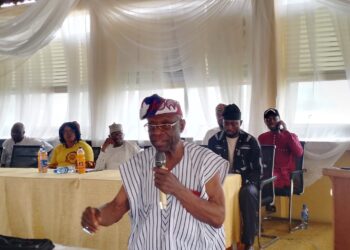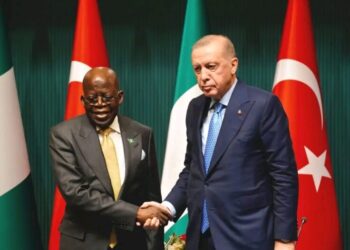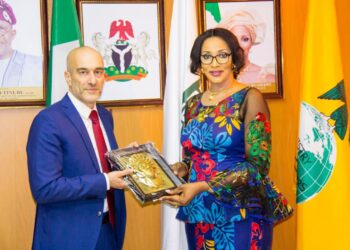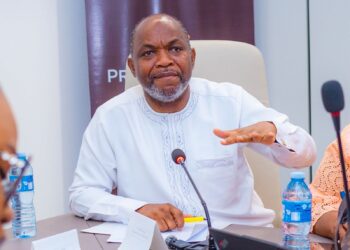By Bridget Ikyado
Abuja – The Bureau of Public Service Reforms (BPSR) says it is working assiduously to make Nigerian Public Service among the 20 best in the world by 2030.
The Director-General of the Bureau, Mr Dasuki Arabi, gave the assurance in Abuja when a Coalition of Civil Society Organisations conferred on him the Outstanding Civil Service Award.
The award was in recognition of his contributions to nation building.
He said that the bureau had taken measures to reposition the public service to be more effective and efficient in serving the citizens.
 Mr Arabi with some members of the organisation after the presentation of the award.
Mr Arabi with some members of the organisation after the presentation of the award.
“The first thing that we have done is committing Nigeria to Open Government Partnership (OGP) to open the public service and make the citizens the centre of governance.
“The second one is Freedom of Information (FOI), opening the public service and giving the civil society and the citizens the right to ask questions.
“Questions on how we are managing our finances, how we are delivering on our mandates and targets.
“The third one is digitisation of public financial management, Treasury Single Account (TSA), Bank Verification Number (BVN), which are all aimed at improving transparency, opening the space, avoiding or reducing man-to-man contact.
“The fourth is performance management, which is aimed at asking us to produce results against targets set for us.
” The other one is the mentorship and succession programme, where we aim to produce public servants or civil servants that will be trained to take over from their seniors immediately they exit the service.
“Another one is the scorecard or ranking of websites which is aimed at opening the public service and getting or compelling agencies of domain to provide information on their activities to the citizens and their customers,” he explained.
The Director-General said that the bureau is presently focusing on capacity development.
“We have seen those other nations that are similar, or on the same level with Nigeria have the same programmes like Nigeria.
“What is required is every skilled and upskilled public servant that will be able to implement those programmes.
“So let’s do the brain work. We have driven quite a number of capacity development products, special capacity programmes to improve the skills of the public service,” he said.
Arabi said the bureau would continue to work in synergy with ministries, departments and agencies of government to actualise government reform policies.
“All the work and the activities that we’re doing are aimed at digitising our processes, once we digitise, we have opened up the space where you don’t have anywhere to hide.
“The few things that we say we have done around TSA, BVN adjustments are all aimed at improving transparency and fighting corruption.
“We are hopeful that by the time we have finished all the programmes, we will have no space for corruption,” the BPSR boss said.
Earlier, spokesperson for the coalition, Mr Victor Udoh, said he was impressed with the successes recorded by the bureau, including detection of ghost workers to give room for the employment of young people.
He said that the bureau must not allow the institutions of government to be static.
“From all the documents I received from the bureau, it shows a bureau setting public service in motion, so that we are not just catching up, but in tune with reality.
“That is what the bureau is doing, it is not trying to catch up with best practices, it is in tune with the best practices,” he added.
According to him, if the bureau gets everything right, there will be less hassle with the pension system, employment structure and delivery of public service.
Udoh said so far, the bureau has remained consistent in the actualisation of its mandate to transform the public service.
“That means they are performing more than the original mandate of its establishment, it has been a reformative institution,” he said. (NAN/vitalnewsngr.com)


















